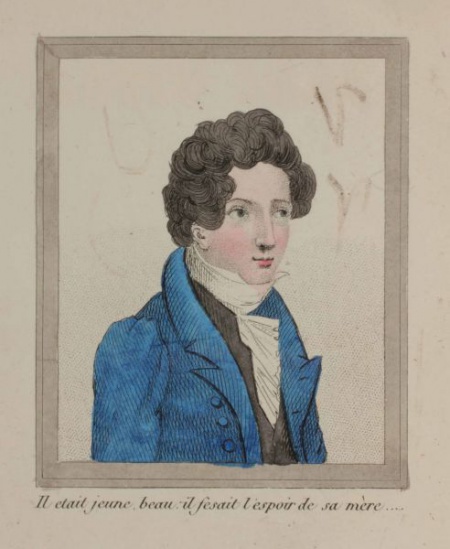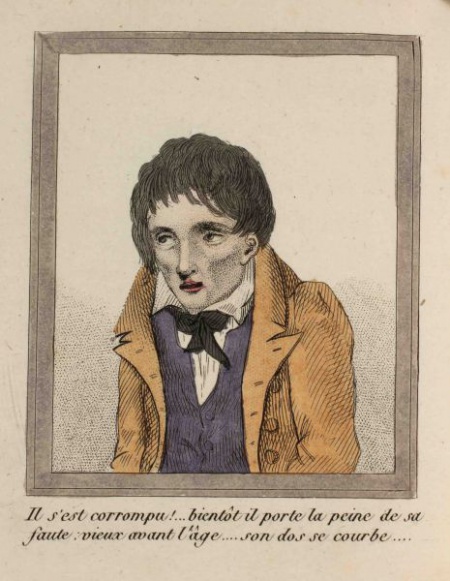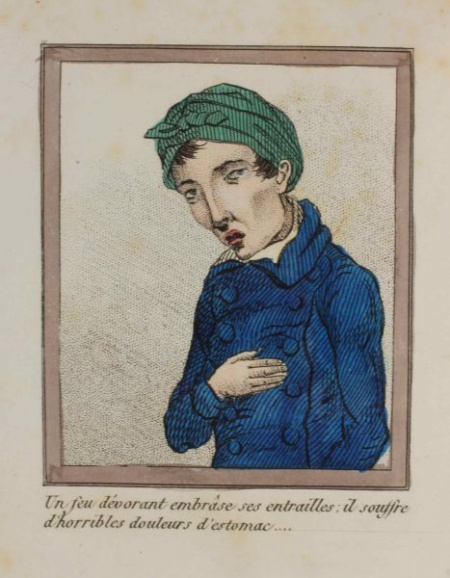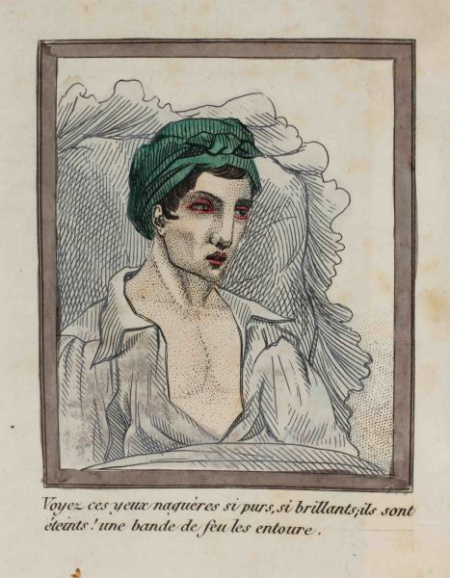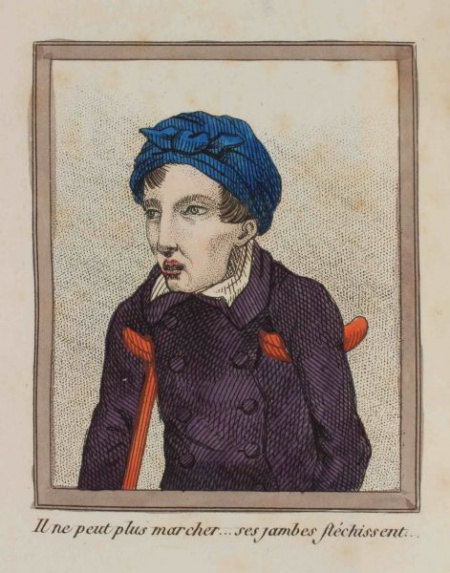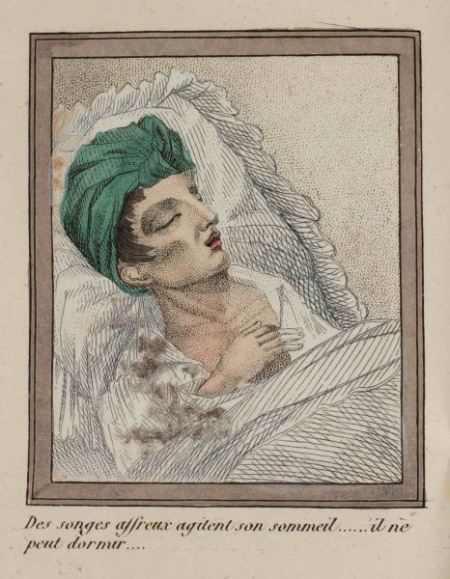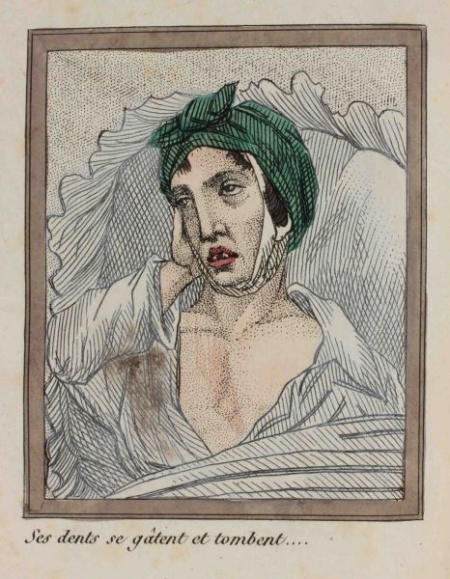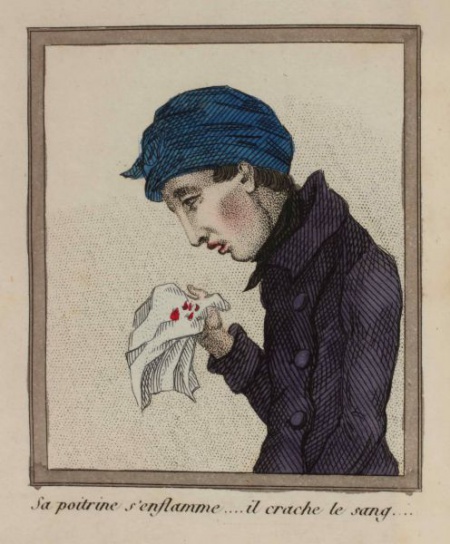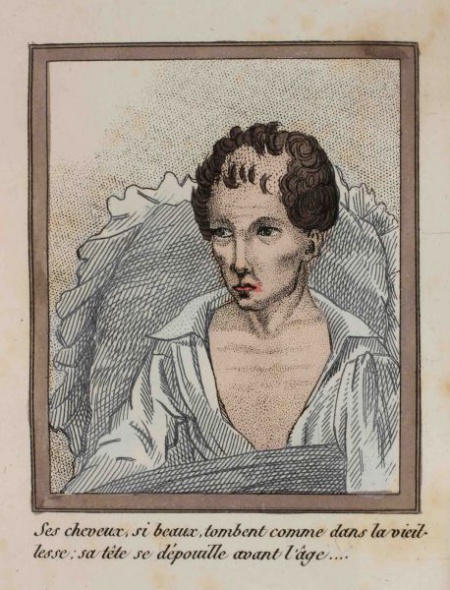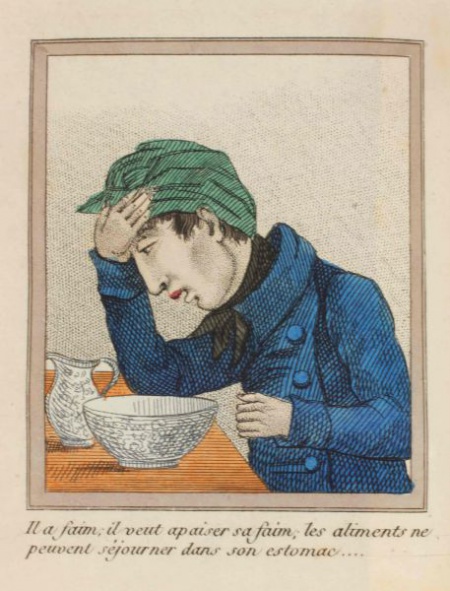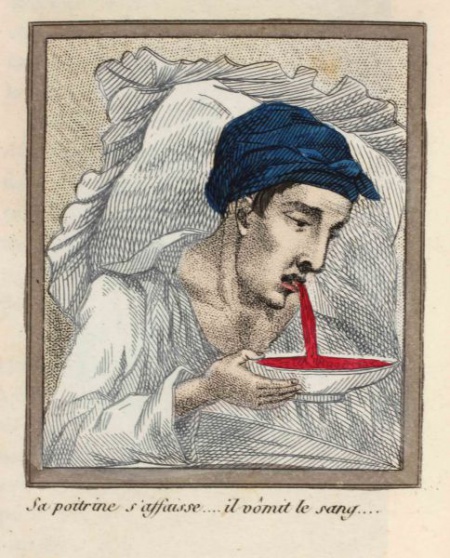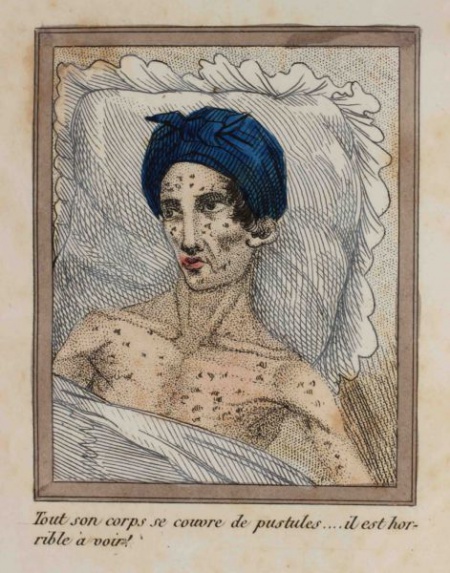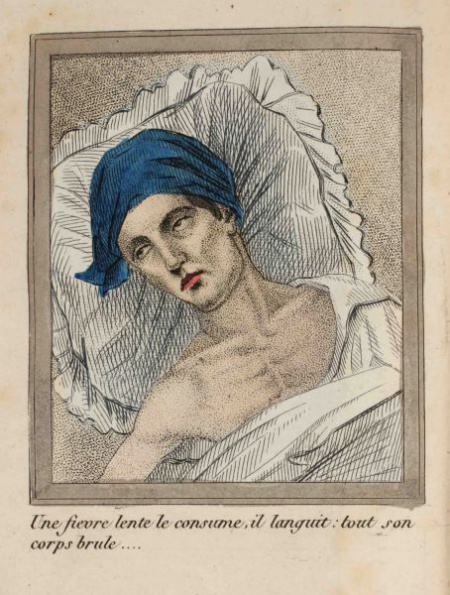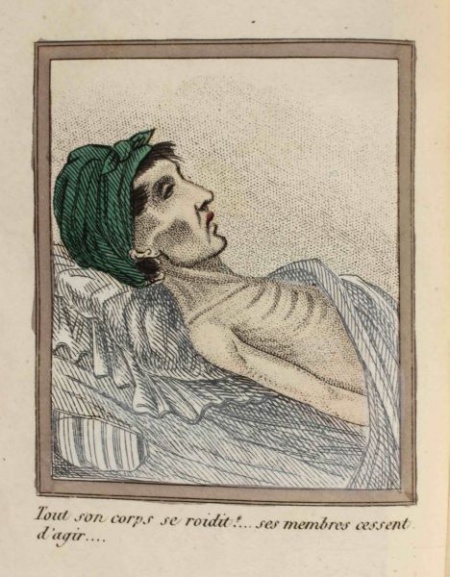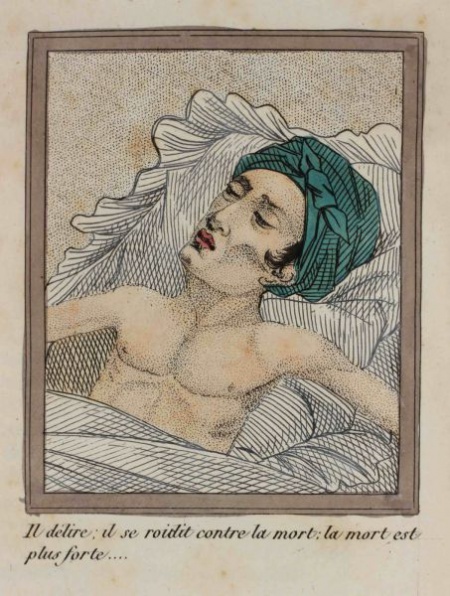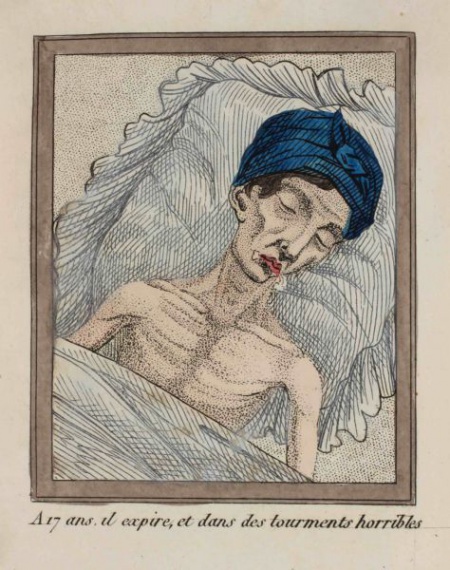|
|
| Line 25: |
Line 25: |
|
| |
|
| ===Examples and counter-examples=== | | ===Examples and counter-examples=== |
|
| |
|
| |
| Tityre, tu patulae recubans sub tegmine fagi
| |
| siluestrem tenui musam meditaris auena:
| |
| nos patriae finis et dulcia linquimus arua.
| |
| nos patriam fugimus: tu, Tityre, lentus in umbra
| |
| formosam resonare doces Amaryllida siluas.
| |
| [[Image:Scruffy_Lad_December_1998_SnomanbL_632X510.jpg|left|thumb|upright=1.5|''Snowboylove <br>Scruffylad<br>left. Text is displayed at the right of this image.<br>The top of this image is aligned with the words <i>O Meliboee</i>'']]
| |
|
| |
| O Meliboee, deus nobis haec otia fecit.
| |
| namque erit ille mihi semper deus, illius aram
| |
| saepe tener nostris ab ouilibus imbuet agnus.
| |
| ille meas errare boues, ut cernis, et ipsum
| |
| ludere quae uellem calamo permisit agresti.
| |
| Non equidem inuideo, miror magis; undique totis
| |
| usque adeo turbatur agris. en, ipse capellas
| |
| protenus aeger ago; hanc etiam uix, Tityre, duco.
| |
| hic inter densas corylos modo namque gemellos,
| |
| spem gregis, a, silice in nuda conixa reliquit.
| |
| saepe malum hoc nobis, si mens non laeua fuisset,
| |
| de caelo tactas memini praedicere quercus.
| |
| sed tamen iste deus qui sit, da, Tityre, nobis.
| |
| Vrbem quam dicunt Romam, Meliboee, putaui
| |
| stultus ego huic nostrae similem, quo saepe solemus
| |
| pastores ouium teneros depellere fetus.
| |
| sic canibus catulos similes, sic matribus haedos
| |
| noram, sic paruis componere magna solebam.
| |
| uerum haec tantum alias inter caput extulit urbes
| |
| quantum lenta solent inter uiburna cupressi.
| |
| Et quae tanta fuit Romam tibi causa uidendi?
| |
| Libertas, quae sera tamen respexit inertem,
| |
| candidior postquam tondenti barba cadebat,
| |
| respexit tamen et longo post tempore uenit,
| |
| postquam nos Amaryllis habet, Galatea reliquit.
| |
| namque, fatebor enim, dum me Galatea tenebat,
| |
| nec spes libertatis erat nec cura peculi.
| |
| quamuis multa meis exiret uictima saeptis,
| |
| pinguis et ingratae premeretur caseus urbi,
| |
| non umquam grauis aere domum mihi dextra redibat.
| |
| Mirabar quid maesta deos, Amarylli, uocares,
| |
| cui pendere sua patereris in arbore poma;
| |
| Tityrus hinc aberat. ipsae te, Tityre, pinus,
| |
| ipsi te fontes, ipsa haec arbusta uocabant.
| |
| Quid facerem? neque seruitio me exire licebat
| |
| nec tam praesentis alibi cognoscere diuos.
| |
| hic illum uidi iuuenem, Meliboee, quotannis
| |
| bis senos cui nostra dies altaria fumant.
| |
| hic mihi responsum primus dedit ille petenti:
| |
| "pascite ut ante boues, pueri; summittite tauros.
| |
| Fortunate senex, ergo tua rura manebunt.
| |
| et tibi magna satis, quamuis lapis omnia nudus
| |
| limosoque palus obducat pascua iunco:
| |
| non insueta grauis temptabunt pabula fetas,
| |
| nec mala uicini pecoris contagia laedent.
| |
| fortunate senex, hic inter flumina nota
| |
| et fontis sacros frigus captabis opacum.
| |
| hinc tibi quae semper uicino ab limite saepes
| |
| Hyblaeis apibus florem depasta salicti
| |
| saepe leui somnum suadebit inire susurro:
| |
| hinc alta sub rupe canet frondator ad auras;
| |
| nec tamen interea raucae, tua cura, palumbes,
| |
| nec gemere aeria cessabit turtur ab ulmo.
| |
| Ante leues ergo pascentur in aethere cerui
| |
| et freta destituent nudos in litore piscis,
| |
| ante pererratis amborum finibus exul
| |
| aut Ararim Parthus bibet aut Germania Tigrim,
| |
| quam nostro illius labatur pectore uultus.
| |
| At nos hinc alii sitientis ibimus Afros,
| |
| pars Scythiam et rapidum cretae ueniemus Oaxen
| |
| et penitus toto diuisos orbe Britannos.
| |
| [[Image:Snomanbyl.jpg|center|thumb|upright=1.5|''Snowboylove <br>Scruffylad<br>center. There is no text on either side of the picture. It comes directly under the word <i>Britannos</i> and before the words <i>en umquam patrios</i>. Had <i>Britannos</i> been at the right hand side of the previous picture, the result would have looked messy. as in the following example '']]
| |
| en umquam patrios longo post tempore finis
| |
| pauperis et tuguri congestum cespite culmen,
| |
| post aliquot, mea regna, uidens mirabor aristas?
| |
| impius haec tam culta noualia miles habebit,
| |
| barbarus has segetes: en quo discordia ciuis
| |
| produxit miseros: his nos conseuimus agros!
| |
| insere nunc, Meliboee, piros, pone ordine uitis.
| |
| ite meae, quondam felix pecus, ite capellae.
| |
| non ego uos posthac uiridi proiectus in antro
| |
| dumosa pendere procul de rupe uidebo;
| |
| carmina nulla canam; non me pascente, capellae,
| |
| [[Image:Snomanbyl.jpg|right|thumb|upright=1.5|''Snowboylove <br>Scruffylad<br>right. Text is supposed to be displayed at the left, only in this case the text is pushed away by the centered image.'']]
| |
| florentem cytisum et salices carpetis amaras.
| |
| Hic tamen hanc mecum poteras requiescere noctem
| |
| fronde super uiridi: sunt nobis mitia poma,
| |
| [[Image:Snomanbyl.jpg|center|thumb|upright=1.5|''Snowboylove <br>Scruffylad<br>Center. The image is under the word <i>poma</i>, which is at the left of the former image. The result looks messy.'']]
| |
| castaneae molles et pressi copia lactis,
| |
| et iam summa procul uillarum culmina fumant,
| |
| maioresque cadunt altis de montibus umbrae.
| |
|
| |
| Sicelides Musae, paulo maiora canamus!
| |
| non omnis arbusta iuuant humilesque myricae
| |
| si canimus siluas, siluae sint consule dignae.
| |
| Vltima Cymaei uenit iam carminis aetas;
| |
| magnus ab integro saeclorum nascitur ordo.
| |
| iam redit et Virgo, redeunt Saturnia regna,
| |
| iam noua progenies caelo demittitur alto.
| |
| tu modo nascenti puero, quo ferrea primum
| |
| desinet ac toto surget gens aurea mundo,
| |
| casta faue Lucina: tuus iam regnat Apollo.
| |
| teque adeo decus hoc aeui, te consule, inibit,
| |
| Pollio, et incipient magni procedere menses;
| |
| te duce, si qua manent sceleris uestigia nostri,
| |
| irrita perpetua soluent formidine terras.
| |
| [[Image:Snomanbyl.jpg|right|thumb|upright=1.5|''Snowboylove <br>Scruffylad<br>right. Text is displayed at the left'.<b>The top of this image is aligned with the words<i>ille deum uitam</i>']]
| |
| ille deum uitam accipiet diuisque uidebit
| |
| permixtos heroas et ipse uidebitur illis,
| |
| pacatumque reget patriis uirtutibus orbem.
| |
| At tibi prima, puer, nullo munuscula cultu
| |
| errantis hederas passim cum baccare tellus
| |
| mixtaque ridenti colocasia fundet acantho.
| |
| ipsae lacte domum referent distenta capellae
| |
| ubera, nec magnos metuent armenta leones;
| |
| ipsa tibi blandos fundent cunabula flores.
| |
| occidet et serpens, et fallax herba ueneni
| |
| occidet; Assyrium uulgo nascetur amomum.
| |
| at simul heroum laudes et facta parentis
| |
| iam legere et quae sit poteris cognoscere uirtus,
| |
| molli paulatim flauescet campus arista,
| |
| incultisque rubens pendebit sentibus uua,
| |
| et durae quercus sudabunt roscida mella.
| |
| pauca tamen suberunt priscae uestigia fraudis,
| |
| quae temptare Thetin ratibus, quae cingere muris
| |
| oppida, quae iubeant telluri infindere sulcos.
| |
| alter erit tum Tiphys, et altera quae uehat Argo
| |
| delectos heroas; erunt etiam altera bella
| |
| atque iterum ad Troiam magnus mittetur Achilles.
| |
| hinc, ubi iam firmata uirum te fecerit aetas,
| |
| cedet et ipse mari uector, nec nautica pinus
| |
| mutabit merces: omnis feret omnia tellus.
| |
| non rastros patietur humus, non uinea falcem;
| |
| robustus quoque iam tauris iuga soluet arator;
| |
| nec uarios discet mentiri lana colores,
| |
| ipse sed in pratis aries iam suaue rubenti
| |
| murice, iam croceo mutabit uellera luto;
| |
| sponte sua sandyx pascentis uestiet agnos.
| |
| "Talia saecla" suis dixerunt "currite" fusis
| |
| concordes stabili fatorum numine Parcae.
| |
| adgredere o magnos (aderit iam tempus) honores,
| |
| cara deum suboles, magnum Iouis incrementum!
| |
| aspice conuexo nutantem pondere mundum,
| |
| terrasque tractusque maris caelumque profundum.
| |
| aspice uenturo laetentur ut omnia saeclo!
| |
| o mihi tum longae maneat pars ultima uitae,
| |
| spiritus et quantum sat erit tua dicere facta:
| |
| non me carminibus uincet nec Thracius Orpheus,
| |
| nec Linus, huic mater quamuis atque huic pater adsit,
| |
| Orphei Calliopea, Lino formosus Apollo.
| |
| Pan etiam, Arcadia mecum si iudice certet,
| |
| Pan etiam Arcadia dicat se iudice uictum.
| |
| incipe, parue puer, risu cognoscere matrem
| |
| (matri longa decem tulerunt fastidia menses)
| |
| incipe, parue puer: quoi non risere parentes,
| |
| nec deus hunc mensa, dea nec dignata cubilist.
| |
|
| |
| Young Corydon, th’unhappy Shepherd Swain
| |
| The fair Alexis lov’d, but lov’d in vain:
| |
| And underneath the Beechen Shade, alone,
| |
| Thus to the Woods and Mountains made his moan.
| |
| Is this, unkind Alexis, my reward,
| |
| And must I die unpitied, and unheard?
| |
| Now the green Lizard in the Grove is laid,
| |
| The Sheep enjoy the coolness of the Shade;
| |
| And Thestilis wild Thime and Garlike beats
| |
| For Harvest Hinds, o’erspent with Toyle and Heats:
| |
| While in the scorching Sun I trace in vain
| |
| Thy flying footsteps o’re the burning Plain.
| |
| The creaking Locusts with my Voice conspire,
| |
| They fry’d with Heat, and I with fierce Desire.
| |
| How much more easie was it to sustain
| |
| Proud Amarillis, and her haughty Reign,
| |
| The Scorns of Young Menalcus, once my care
| |
| Tho’ he were black, and thou art Heav’nly fair.
| |
| Trust not too much to that enchanting Face;
| |
| Beauty’s a Charm, but soon the Charm will pass:
| |
| White Lillies lie neglected on the Plain,
| |
| While dusky Hyacinths for use remain.
| |
| My Passion is thy Scorn; nor wilt thou know
| |
| What Wealth I have, what Gifts I can bestow:
| |
| What Stores my Dairies and my Folds contain;
| |
| A thousand Lambs that wander on the Plain:
| |
| New Milk that all the Winter never fails,
| |
| And all the Summer overflows the Pails:
| |
| Amphion sung not sweeter to his Herd,
| |
| When summon’d Stones the Theban Turrets rear’d.
| |
| Nor am I so deform’d; for late I stood
| |
| Upon the Margin of the briny Flood:
| |
| The Winds were still, and if the Glass be True,
| |
| With Daphnis I may vie, tho’ judg’d by you.
| |
| O leave the noisie Town, O come and see
| |
| Our Country Cotts, and live content with me!
| |
| To wound the Flying Deer, and from their Cotes
| |
| With me to drive a-Field, the browzing Goats:
| |
| To pipe and sing, and in our Country Strain
| |
| To copy, or perhaps contend with Pan.
| |
| Pan taught to joyn with Wax unequal Reeds,
| |
| Pan loves the Shepherds, and their Flocks he feeds.
| |
| Nor scorn the Pipe; Amnytas, to be taught,
| |
| With all his Kisses should my Skill have bought.
| |
| Of seven smooth joints a mellow Pipe I have,
| |
| Which with his dying breath Damaetas gave:
| |
| And said, This, Corydon, I leave to thee;
| |
| For only thou deserv’st it after me.
| |
| His Eyes Amyntas durst not upward lift,
| |
| For much he grudg’d the Praise, but more the Gift.
| |
| Besides two Kids that in the Valley stray’d,
| |
| I found by chance and to my Fold convey’d.
| |
| They drein two bagging Udders every day;
| |
| And these shall be Companions of thy Play.
| |
| Both fleck’d with white, the true Arcadian Strain,
| |
| Which Thestilis had often beg’d in vain:
| |
| And she shall have them, if again she sues,
| |
| Since you the Giver and the Gift refuse.
| |
| Come to my longing Arms, my lovely care,[[Image:Snomanbyl.jpg|right|thumb|upright=1.5|''Snowboylove <br>Scruffylad<br>right. The top of this box is aligned on the words <i>Come to my longing arms</i>. It is somewhat too tall to be put so low in a chapter, and is displayed astride this and the next one. It can cause confusion as to what part of the text it is meant to illustrate.']]
| |
| And take the Presents which the Nymphs prepare.
| |
| White Lillies in full Canisters they bring,
| |
| With all the Glories of the Purple Spring:
| |
| The Daughters of the Flood have search’d the Mead
| |
| For Violets pale, and cropt the Poppy’s Head:
| |
| For Short Narcissus and fair Daffodil,
| |
|
| |
| ====See? This image is astride two chapters====
| |
|
| |
| Pancies to please the Sight, and Cassia sweet to smell:
| |
| And set soft Hyacinths with Iron blue,
| |
| To shade marsh Marigolds of shining Hue.
| |
| Some bound in Order, others loosely strow’d,
| |
| To dress thy Bow’r, and trim thy new Abode.
| |
| My self will search our planted Grounds at home,
| |
| For downy Peaches and the glossie Plum:
| |
| And thrash the Chesnuts in the Neighb’ring Grove,
| |
| Such as my Amarillis used to love.
| |
| The Laurel and the Myrtle sweets agree;
| |
| And both in Nosegays shall be bound for thee.
| |
| Ah, Corydon, ah poor unhappy Swain,
| |
| Alexis will thy homely Gifts disdain:
| |
| Nor, shoulds’t thou offer all thy little Store,
| |
| Will rich Iolas yield, but offer more.
| |
| What have I done, to name that wealthy Swain,
| |
| So powerful are his Presents, mine so mean!
| |
| The Boar amid my Crystal Streams I bring;
| |
| And Southern Winds to blast my flow’ry Spring.
| |
| Ah, cruel Creature, whom dost thou despise?
| |
| The Gods to live in Woods have left the Skies.
| |
| And Godlike Paris in th’ Idean Grove,
| |
| To Priam’s Wealth prefer’d Oenone’s Love.
| |
| In Cities which she built, let Pallas Reign;
| |
| Tow’rs are for Gods, but Forrests for the Swain.
| |
| The greedy Lyoness the Wolf pursues,
| |
| The Wolf the Kid, the wanton Kid the Bowze:
| |
| Alexis thou are chas’d by Corydon;
| |
| All follow sev’ral Games, and each his own.
| |
| See from afar the Fields no longer smoke,
| |
| The sweating Steers unharnass’d from the Yoke,
| |
| Bring, as in Triumph, back the crooked Plough;
| |
| The Shadows lengthen as the Sun goes Low.
| |
| Cool Breezes now the raging Heats remove;
| |
| Ah, cruel Heaven! that made no Cure for Love!
| |
| I wish for balmy Sleep, but wish in vain:
| |
| Love has no bounds in Pleasure, or in Pain.
| |
| What frenzy, Shepherd, has thy Soul possess’d,
| |
| Thy Vinyard lies half prun’d, and half undress’d.
| |
| Quench, Corydon, thy long unanswered fire:
| |
| Mind what the common wants of Life require.
| |
| On willow Twigs employ thy weaving care:
| |
| And find an easier Love, tho’ not so fair.
| |
|
| |
|
| |
|
| ==Gallery== | | ==Gallery== |
